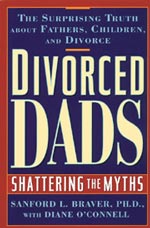![]()
LA Man Denies Killing Daughter to Avoid Payment
Reuters, Los Angeles, California, U.S.A., July 26, 2004
LOS ANGELES (Reuters) - A Los Angeles man accused of pushing his 4-year-old daughter from an ocean cliff to avoid child support payments pleaded innocent on Monday to murder charges that could carry the death penalty.
Cameron John Brown, 42, faces charges of murder and special allegations of lying in wait and murder for financial gain nearly four years after his daughter, Lauren Key, was found dead at the foot of a cliff along the Pacific Ocean.
Brown told police that he and Lauren were separated during a Nov. 8, 2000 hike along a popular trail that runs along the Palos Verdes cliffs, about 25 miles south of Los Angeles. He said he later found the child floating in the water at the foot of Inspiration Point, a cliff that drops 120 feet to the Pacific Ocean, prosecutor Craig Hum said.
Brown, a baggage handler at Los Angeles International Airport, had virtually no contact with the girl until she was about three years old and her mother sued him for child support, Hum said.
After paternity tests showed that he was Lauren's father, Brown was ordered to pay $1,000 a month in child support -- a significant portion of his income, Hum said.
"As soon as he was ordered to pay child support, he requested visitation and a reduction in the child support," Hum said. "The judge granted visitation and denied the reduction in child support."
Brown was gradually allowed unsupervised visits with Lauren, and it was during a day visit with her that investigators believe he hoisted her over the cliff, Hum said. Brown has been jailed without bail since his November arrest.
Reuters 2004. All Rights Reserved.



